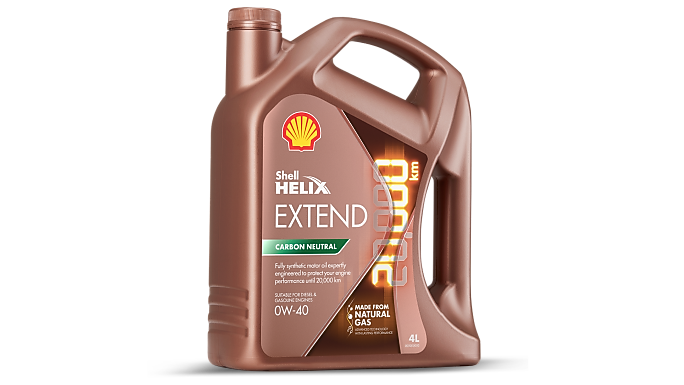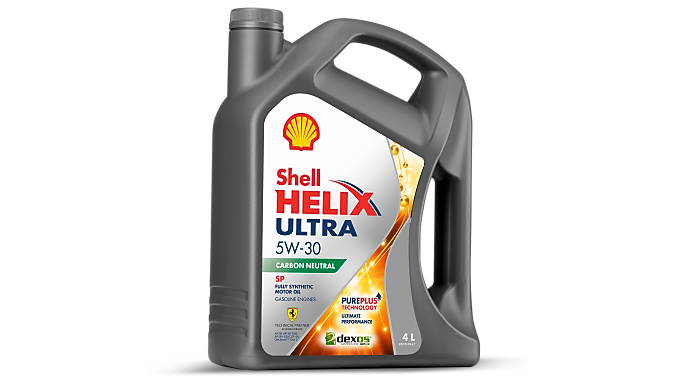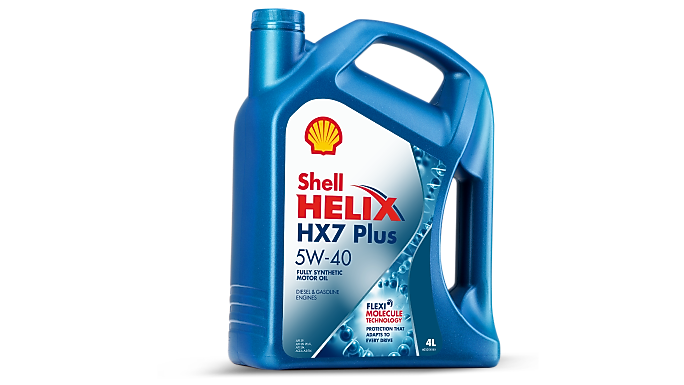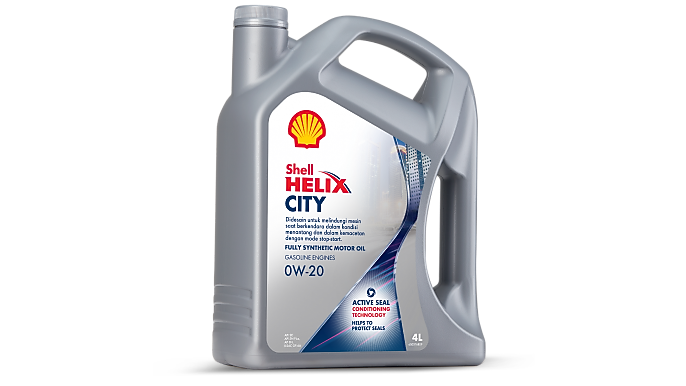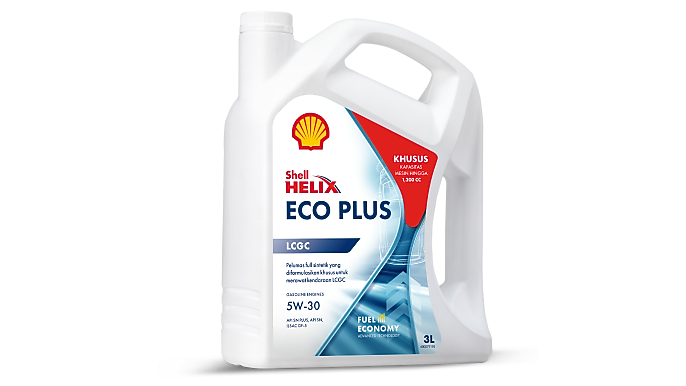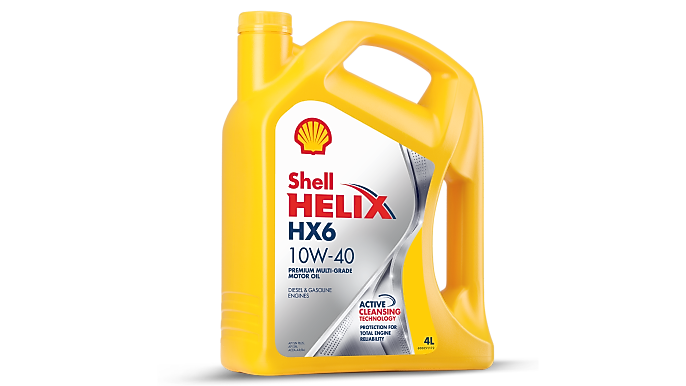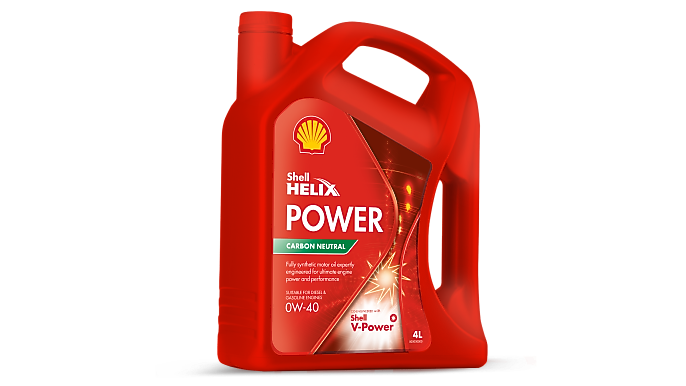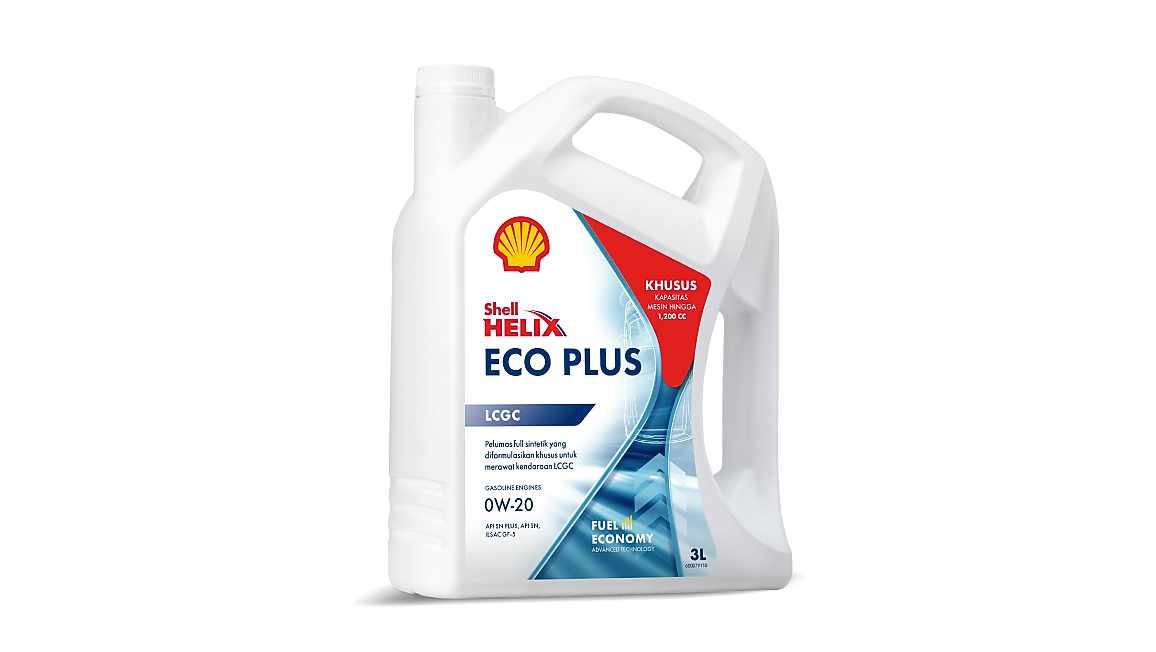
Shell Helix
Pelumas mesin mobil dengan perlindungan lengkap untuk performa maksimal
Perlindungan unggul terhadap keausan dan korosi
Bantu perpanjang usia mesin & menetralisir asam korosif pembakaran
Formulasi yang menghemat konsumsi bahan bakar
Formulasi rendah friksi & rendah viskositas
Perlindungan terbaik terhadap residu mesin kendaraan
Satu-satunya pelumas yang menjaga mesin kendaraan tetap bersih
Superior Active Cleansing Technology
Bersihkan mesin dari endapan yang dapat mengganggu performa

Bingung pilih oli yang sesuai untuk mobil anda?
Tenang, tim profesional kami siap membantu

Frequently Ask Question (F.A.Q)
Mengapa kemampuan pelumas mesin untuk membersihkan itu penting?
Mengapa kemampuan pelumas mesin untuk membersihkan itu penting?
Menjaga kebersihan komponen-komponen mesin penting untuk menjaga agar kondisinya tetap baik. Bila komponen-komponen mesin Anda kotor, pelumas mungkin tidak melumasi dan melindungi mesin dengan benar. Timbunan kotoran bisa menyebabkan kerusakan dini pada mesin. Pelumas mesin Shell Helix dirancang untuk membersihkan dan melindungi mesin guna meningkatkan performa.
Mengapa pilihan pelumas mesin sangat penting?
Mengapa pilihan pelumas mesin sangat penting?
Pelumas ibarat darah dalam mobil Anda. Bila Anda menggunakan jenis pelumas yang salah, risiko keausan dan korosi pada mesin dapat meningkat. Sumbatan-sumbatan yang terbentuk bisa menyebabkan kemacetan pada mesin. Dengan mengisikan pelumas Shell Helix pada mesin, Anda bisa terus berkendara dengan percaya diri dan merasa seolah mobil Anda baru saja diservis, dengan biaya lebih murah dari harga setangki bahan bakar.
Bagaimana pelumas melindungi mesin saya?
Bagaimana pelumas melindungi mesin saya?
Dengan berbagai cara:
Dengan membersihkan mesin – pelumas Shell Helix dirancang untuk membersihkan kotoran, serpihan, dan endapan dari komponen-komponen mesin dan untuk mencegah penyumbatan di dalam saluran pelumas yang penting. Pelumas membantu mengikat kotoran dan membuatnya menjadi tidak berbahaya sampai disingkirkan pada penggantian pelumas berikutnya.
Dengan mengurangi gesekan dan meminimalkan keausan - pelumas Shell Helix membentuk lapisan pelindung untuk komponen-komponen mobil Anda dan memiliki aditif khusus yang bekerja di antara permukaan yang bergerak untuk mencegah kontak dan menurunkan tarikan. Ini membantu mesin Anda bekerja dengan tenang dan efektif seperti yang dimaksudkan oleh para perancangnya.
Dengan menghilangkan panas - pelumas Shell Helix membawa panas dari bagian-bagian yang panas, seperti di sekitar cincin piston di mana suhu bisa mencapai 320°C, dan menyalurkannya kembali ke seluruh mesin.
Dengan mencegah korosi dan karat - pelumas Shell Helix membantu melindungi komponen-komponen mesin yang bekerja dengan berat dari korosi di luar interval penggantian pelumas normal. Hasil studi banding menunjukkan bahwa pelumas Shell Helix memberikan perlindungan terbaik di kelasnya serta membantu memperpanjang masa pakai mesin Anda dan menghindari reparasi yang mahal.
Pelumas mesin dibuat dari apa?
Pelumas mesin dibuat dari apa?
Pelumas mesin dibuat dari tiga bahan penting– minyak dasar, pengubah kekentalan, dan aditif untuk performa. Bahan-bahan ini dipilih dengan cermat dan dicampur dengan terampil agar pelumas mampu memberikan perlindungan maksimum pada mesin.
Apakah penting mengganti pelumas dan berapa sering saya harus melakukannya?
Apakah penting mengganti pelumas dan berapa sering saya harus melakukannya?
Anda harus mengganti pelumas dan penapis Anda pada atau sebelum akhir interval penggantian pelumas yang dianjurkan oleh pabrik pembuat kendaraan Anda. Penggantian ini didasarkan pada jarak yang ditempuh atau waktu. Penggantian pelumas secara teratur membantu menjaga pelumas mesin Anda dalam keadaan baik dan memberikan perlindungan terbaik bagi semua komponen mesin Anda.
Bagaimana sebaiknya saya membuang pelumas bekas?
Bagaimana sebaiknya saya membuang pelumas bekas?
Pelumas bekas bisa mencemari lingkungan dan tidak boleh dibuang di saluran pembuangan. Di berbagai negara tindakan ini juga ilegal. Bawa limbah Anda ke tempat pembuangan pelumas resmi atau pusat daur ulang (biasanya terletak di tempat pengumpulan limbah lokal). Atau, minta petunjuk dari petugas yang menangani daur ulang di daerah Anda.
Mengapa ada berbagai produk pelumas mesin dan bagaimana saya tahu pelumas mana yang harus saya pilih?
Mengapa ada berbagai produk pelumas mesin dan bagaimana saya tahu pelumas mana yang harus saya pilih?
Buku panduan pemilik mobil akan memberi Anda spesifikasi pelumas minimum. Namun, Anda mungkin ingin menggantinya dengan pelumas yang spesifikasinya lebih baik. Memilih pelumas mesin yang tepat bagi kendaraan bergantung pada:
- jenis mobil – mobil berperforma tinggi membutuhkan pelumas dengan performa yang lebih tinggi pula.
- umur mobil – banyak yang diharapkan dari mesin dengan teknologi baru: performa tinggi yang dibarengi dengan penghematan bahan bakar. Pelumas yang canggih sudah dikembangkan untuk membantu mengimbangi tuntutan teknis yang meningkat. Misalnya, mobil modern memiliki resirkulasi gas buang yang dapat mengakibatkan oksidasi ekstrem pada pelumas dengan teknologi lama, dan juga memiliki perangkat aftertreatment gas knalpot yang sensitif sehingga dapat diracuni oleh pelumas yang tidak tepat.
- lingkungan berkendara – berkendara di jalan raya dan lalu lintas yang sering berhenti-jalan memerlukan pelumas yang berkualitas lebih tinggi untuk mencegah meningkatnya keausan dan keusangan.
Mungkin Anda lebih menyukai salah satu produk aplikasi dasar kami, seperti Shell Helix HX7 K, yang dirancang khusus untuk mobil yang sudah berjarak tempuh lebih dari 100.000 km.
Untuk menemukan pelumas yang tepat bagi Anda dengan cepat dan mudah, cobalah alat Shell LubeMatch kami.
Mengapa Shell Helix lebih baik dari pelumas merek terkenal lain?
Mengapa Shell Helix lebih baik dari pelumas merek terkenal lain?
Kami telah memasukkan pengalaman bertahun-tahun Shell dalam pengembangan pelumas ke dalam setiap aspek formula Shell Helix - dari teknologi minyak dasar sampai pemilihan dan pencampuran bahan aditif. Kami juga telah menyalurkan pengalaman yang kami peroleh dalam mendukung tim balap terkemuka, seperti Scuderia Ferrari, ke dalam formula Shell Helix. Formulasinya dirancang untuk menghadapi tantangan, sehingga betapa pun beratnya kondisi mengemudi Anda, Shell Helix akan membantu membersihkan dan melindungi mesin Anda.
Mengapa saya harus membeli Shell Helix bila saya bisa membeli aditif dari toko dan mencampurnya dengan pelumas yang ada?
Mengapa saya harus membeli Shell Helix bila saya bisa membeli aditif dari toko dan mencampurnya dengan pelumas yang ada?
Menambahkan aditif dengan volume yang tidak terkontrol ke dalam pelumas adalah seperti menambahkan garam ke makanan pencuci mulut Anda. Dibutuhkan pengalaman bertahun-tahun dalam pencampuran aditif untuk menghasilkan formula yang tepat untuk pelumas Shell Helix, dan cara berbagai aditif dicampurkan dengan minyak dasar sangatlah penting bagi performa keseluruhan pelumas. Jadi saran kami adalah "jangan tambahkan aditif" bila Anda hendak mendapatkan performa yang maksimal dari mobil Anda. Tambahan aditif bisa menyebabkan tidak berlakunya lagi garansi pabrik pembuat kendaraan.
Apakah saya akan merasakan perbedaan bila jarang mengganti pelumas?
Apakah saya akan merasakan perbedaan bila jarang mengganti pelumas?
Tidak mengganti pelumas Anda secara teratur akan menurunkan secara drastis level perlindungan yang diberikan terhadap keausan mesin. Pelumas mesin bertindak sebagai penampung dari semua produk sampingan yang terbentuk saat bahan bakar terbakar, termasuk jelaga, residu, air dan bahan yang bersifat asam, dan juga bahan bakar yang tidak terbakar atau yang terbakar sebagian. Pada waktu yang sama, tekanan yang ditempatkan pada pelumas selama operasi mesin secara bertahap menghabiskan komponen-komponen yang menentukan performa pelumas. Menyegarkan pelumas secara teratur memastikan keseimbangan yang tepat dari komponen-komponen yang ada di dalam pelumas.
Penggantian pelumas juga membersihkan bahan-bahan buangan yang bisa mengakibatkan meningkatnya pembentukan endapan, korosi komponen-komponen logam, dan keausan.
Mengapa mengisi kembali pelumas mesin saja tidak cukup?
Mengapa mengisi kembali pelumas mesin saja tidak cukup?
Bila Anda hanya mengisi kembali pelumas, Anda memberikan lebih banyak tekanan pada pelumas lama yang tersisa di dalam mesin. Dan masalah tekanan ini semakin parah dalam tahun-tahun belakangan ini karena mesin-mesin yang modern dan ringan sekarang dijalankan dengan pelumas yang 25% lebih sedikit di dalam tangkinya. Pelumas Shell Helix mampu membersihkan komponen-komponen mesin Anda dan terus menjaga kebersihan mesin sampai saat penggantian pelumas berikutnya.
Apakah kebanyakan orang mengemudi dalam kondisi mengemudi yang berat?
Apakah kebanyakan orang mengemudi dalam kondisi mengemudi yang berat?
Studi terbaru di Eropa menunjukkan bahwa 75% perjalanan dengan mobil melibatkan perjalanan yang berjarak kurang dari 10 km. Dalam perjalanan seperti ini, mobil sering berhenti-jalan, yang bisa mengakibatkan keausan mesin meningkat tajam bila pelumas tidak diganti secara teratur.
